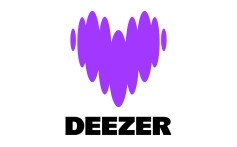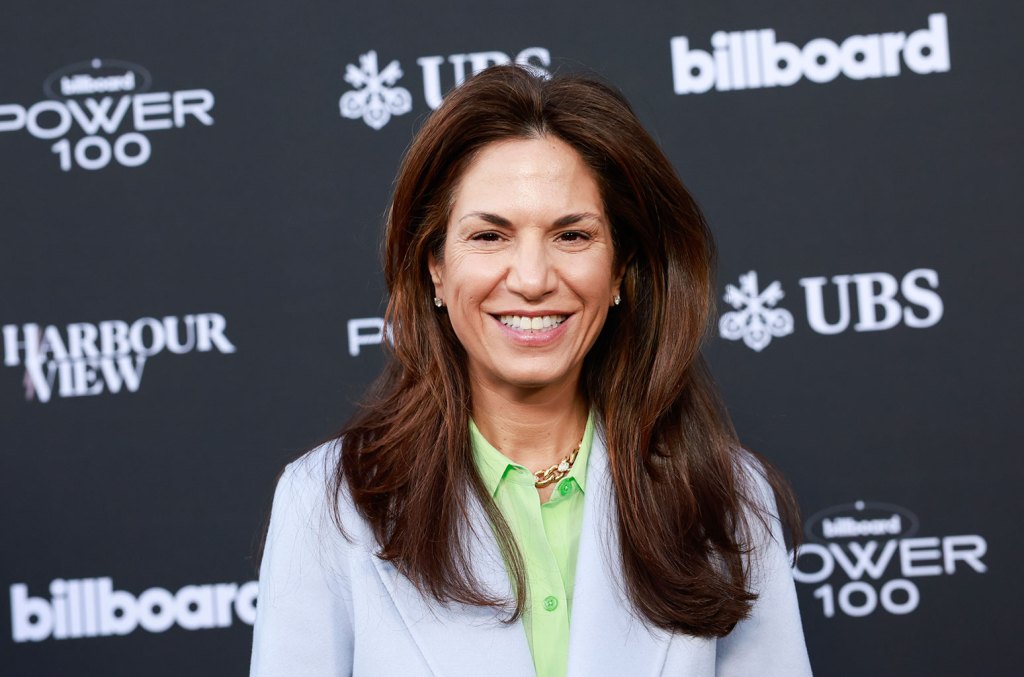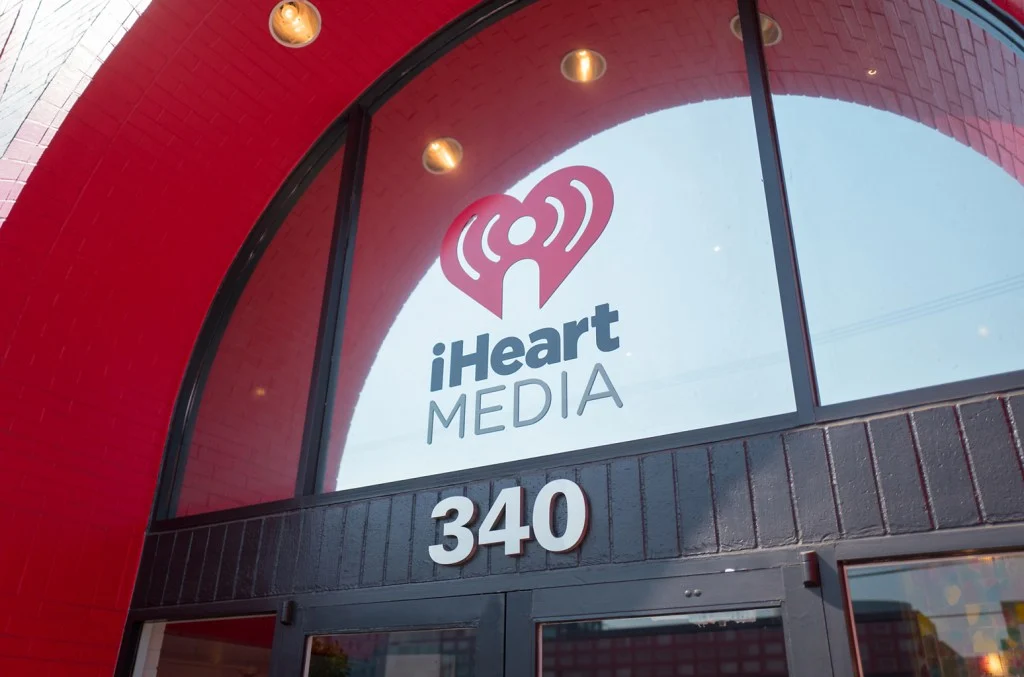earnings report
Trending on Billboard
Warner Music Group (WMG) reported a 23% decline in annual profit for the fiscal year ending Sept. 30 on Thursday (Nov. 20), as restructuring costs and the end of the company’s BMG distribution deal weighed on revenue.
However, executives struck an optimistic tone during their earnings presentation, pointing to higher publishing and recorded music revenue, driven by subscription streaming growth, as evidence that their cost-cutting and reinvestment strategy was working.
Related
WMG’s share price fell 2.66% on Thursday to $29.69. However, analysts at Guggenheim Partners, who have rated WMG a buy over the past few quarters, wrote in a note to investors that the company’s subscription streaming revenue and growth forecast is “encouraging.”
“We modestly raise our [full year 2026] revenue … estimates primarily reflecting higher subscription revenue as a result of pricing adjustments,” Michael Morris, equity analyst at Guggenheim, wrote on Thursday.
Here are a few of the highlights from WMG’s earnings presentation and filings.
Digital music revenue growth and market share improvement
WMG’s digital income improved by 3% in the year, helped by two straight quarters of recorded music streaming growth. Music subscription streaming rose by 8.5% during the quarter. Ad-supported streaming grew by 3%.
Related
This was driven by hits from sombr, whose “Back to Friends” has spent 33 weeks on the Billboard Hot 100, Cardi B’s Am I The Drama?, which has spent the past two months on the Billboard 200, and Twenty One Pilots, whose Breach had the best debut week for a rock album in six years.
On an earnings call, WMG CEO Robert Kyncl noted that the company’s share of the Spotify Top 200 grew “by around 6 percentage points versus fiscal 2024” and that it “had the No. 2 market share” for the full quarter.
Meeting savings goals by using AI for dealmaking
WMG is on track to meet its goal of cutting internal costs by $200 million in 2026 and $300 million in 2027, said Armin Zerza, WMG’s CFO. Because the company is investing more in front-line artist development and key regions and genres, Zerza added, it has focused on savings in back-office functions.
In addition to introducing the cloud-based finance software SAP in Zerza’s department and using data to tailor marketing spend, WMG is working with an AI company to help “optimize” its mergers and acquisitions strategy, Zerza added.
Related
Ultimately, the company’s cost savings plan, along with other growth, is expected to drive a 150 to 200 basis point improvement in WMG’s adjusted operating income before depreciation and amortization (OIBDA) margins.
Details on the Tempo and Bain Deals
WMG’s February acquisition of 50.1% of Tempo Music was for a “consideration of $77 million, including transaction costs,” and it included the option to buy out the remainder of Tempo for $73 million before the end of November 2027, according to an SEC filing released Thursday. That acquisition saw WMG recognize $351 million in publishing copyrights and $88 million in recorded music catalogs, along with $13 million in cash and other assets. Also included in the acquisition was $311 million of asset-backed securities secured by some of Tempo’s catalog, according to the filing. The Tempo catalog includes rights to songs by Wiz Khalifa, Florida Georgia Line and Brett James.
Additionally, Warner disclosed in filings that as part of the joint venture it announced in June to acquire catalogs with Bain, it secured a $500 million line of credit.
Zerza said during the earnings presentation that WMG’s joint venture with Bain has a robust pipeline of deals they expect to begin announcing in 2026.
Trending on Billboard CTS Eventim, Europe’s largest concert promoter and ticketing service, posted revenue and earnings gains in the third quarter despite what it called “challenging economic conditions” in its home market, Germany. Companywide adjusted earnings before interest, taxes, depreciation and amortization (EBITDA) rose 13.8% to 137.3 million euros ($161 million) on revenue of 854.2 […]
Trending on Billboard
Sphere Entertainment Co. reported on Tuesday (Nov. 4) that the success of The Wizard of Oz and the Backstreet Boys residency at its state-of-the-art Las Vegas venue boosted revenue and operating income — though those gains couldn’t offset a nearly $130 million operating loss in the third quarter.
Sphere Entertainment generated revenue of $262.5 million, up 15% or $34.6 million, for the quarter ending Sept. 30, compared to the same period last year. Adjusted operating income, an indicator of how much of a company’s revenue will eventually become profit, rose to $36.4 million from negative $10.2 million a year ago. The company also reported an operating loss of $129.7 million, up $12.1 million from a year ago.
Related
Since opening in 2023, Sphere has become a destination for artist residencies, hosting acts including U2, Phish, the Eagles, electronic act Anyma and now the Backstreet Boys, who recently extended their Into the Millennium residency into February 2026. Upcoming acts include the DJ/producer Illenium, who’s slated for a residency in March and April, and No Doubt, which will play the venue beginning in May.
When Sphere isn’t occupied by a concert, the mega-venue also shows movies, including the U2 immersive concert film recording of its U2:UV Achtung Baby Live residency and The Wizard of Oz at Sphere. The company’s executive chairman and CEO, James Dolan, has said that recording, licensing and adapting these films costs significantly less than live performances and presents meaningful upside revenue.
The Wizard of Oz at Sphere — an immersive adaptation of the classic 1939 movie — has sold more than 1 million tickets and generated more than $130 million in sales since its Aug. 28 premiere, the company reported late last month.
Related
In a statement, Dolan called The Wizard of Oz “the best example to-date of experiential storytelling in this new medium.”
He added that the film “has been met with strong consumer demand. Looking ahead, we believe our Company is well positioned for long-term growth as we continue to execute on our global vision for Sphere.”
Quarterly revenue generated by the company’s Sphere segment rose 37% overall to $174.1 million in revenue over the same period last year, boosted by $28.3 million more in revenue coming from the venue’s film screenings, collectively known as The Sphere Experience.
The Sphere Experience posted higher per-show revenue from its 220 showings (up from 207 last year) of three movies: Postcard from Earth, the immersive U2 concert film and The Wizard of Oz at Sphere. An additional 16 concert residency shows compared to the prior year quarter also helped boost event-related revenue by $15 million, though that was offset by “lower average per-concert revenue due to the mix of concerts” and the absence of big sporting and corporate events in the quarter. Sponsorship and advertising on the outside of Sphere, along with suite licensing fees, rose $2.7 million from a year ago.
Related
But more movies and shows mean more expenses, and those associated with The Sphere Experience rose by about $10 million. Meanwhile, event expenses primarily from residency shows rose by nearly $4 million, contributing to an overall 26% increase in the Sphere segment’s operating expenses, which totaled $78.7 million for the third quarter.
Overall, the Sphere segment posted an operating loss of $84.4 million — a $40.6 million improvement from last year — and adjusted operating income of $17.1 million.
Elsewhere, MSG Networks revenue fell 12% to $88.4 million on a more than 13% decline in subscribers and a $12.7 million decrease in distribution revenue.
Trending on Billboard
Live Nation’s revenue grew 11% year over year to a third-quarter record of $8.5 billion, the company announced Tuesday (Nov. 4).
The world’s largest concert promoter and ticketing company continued to benefit from vigorous consumer demand for live music since the touring business came back from the COVID-19 pandemic. Adjusted operating income (AOI) of $1.03 billion was a 14% increase from the prior-year period. Importantly, event-related deferred revenue and Ticketmaster deferred revenue were up 37% and 30%, respectively, suggesting Live Nation is well situated for upcoming quarters.
Related
“Strong fan demand drove another record quarter, as we continue to attract more fans to more shows globally,” CEO Michael Rapino said in a statement. “With these tailwinds, 2026 is off to a strong start with a double-digit increase in our large venue show pipeline and increased sell-through levels for these shows.”
Foreign exchange had a small impact on reported results. In constant currency, revenue was up 9% (compared to 11% as reported) and AOI was up 12% (compared to 14% as reported).
Within the concerts division, record-high stadium show attendance drove revenue up 11% to $7.3 billion and AOI up 8% to $514 million. Live Nation hosted 51 million fans, and attendance was up by double-digits in all major markets. International markets were led by Europe and Mexico, where attendance growth reached double-digits.
Related
Fan demand has undergone explosive growth since the COVID-19 pandemic. Live Nation’s third-quarter revenue of $8.5 billion was 38% greater than the $6.15 billion it generated in the same quarter of 2022. That improvement is dwarfed by the 125% revenue growth the company has experienced since the third quarter of 2019, a time before Live Nation acquired a majority stake in Mexican promoter OCESA in 2021.
Within the Venue Nation segment, Live Nation’s division that owns and operates venues worldwide, fan spending through October rose 8% at amphitheaters and 6% at major global festivals. Investments in renovations have helped some venues improve fan spending. For example, onsite fan spending at Jones Beach in New York was up 35% through October, while onsite spending at Estadio GNP in Mexico City tripled in the first ten months of the year.
At Ticketmaster, Live Nation’s ticketing division, revenue climbed 15% to $798 million while its AOI jumped 21% to $286 million. The improvement came from a combination of more ticket sales and higher average ticket prices: In the quarter, fee-bearing tickets rose 4% to 89 million, while fee-bearing gross transaction value (GTV) rose 12%.
Related
Through the first nine months of 2025, Ticketmaster’s total fee-bearing GTV rose 7% due to a 16% increase in international markets. Primary fee-bearing GTV improved 8% while secondary GTV declined 1% on lower sports activity.
Live Nation’s sponsorships division had record revenue of $443 million, up 13% from the prior-year quarter. With a gross margin percentage of 71%, the highest of the company’s three divisions, sponsorship’s AOI of $313 million, up 14% year over year, bested Ticketmaster on 44% less revenue.
The number of the sponsorships division’s strategic partners rose 14%. New agreements include consumer brands Hollister, Kraft Heinz and Patrón. The division added a multi-year deal with Trips.com in Asia and expanded its partnership with Mastercard to additional markets, including Hong Kong, South Africa and the Middle East.
Related
Live Nation is on pace for a record-setting 2025. Through the first nine months of the year, revenue is up 8% to $18.89 billion and AOI is up 9% to $2.17 billion. The record-setting third quarter is expected to flow into a strong fourth quarter. Arena, theater and club shows will bring the company to full-year attendance of approximately 160 million, which would be a 6% increase from the 151 million fans it saw in 2024. Live Nation expects to deliver double-digit AOI growth for the full year.
Looking ahead to 2026, the company expects continued growth. In addition to growth in deferred revenue — money received for future events — Live Nation expects a double-digit increase in large venue shows in 2026. Average grosses for 2026 concerts are up double-digits on strong sell-through levels.
Trending on Billboard SiriusXM Holdings saw quarterly revenue slip 1% year-over-year to $2.16 billion, though it reversed a loss from a year ago to generate $297 million in positive net income, the company reported Thursday (Oct. 30). That turnaround — Sirius reported a net loss of $2.96 billion in the third quarter of 2024, stemming […]
Trending on Billboard
Gains from self-paying subscribers almost equally offset losses from partnerships as French music streaming company Deezer’s revenue fell 0.9% to 131.4 million euros ($154 million) in the third quarter, the company announced Thursday (Oct. 23).
“Subscriber growth in France has accelerated for a third consecutive quarter, confirming the positive impact of our differentiation initiatives in our home market,” CEO Alexis Lanternier said in a statement. “In the rest of the world, subscription numbers in the Direct segment are also picking up pace, reflecting the quality of our service and the appeal of our brand as we champion transparency and fairness in music streaming.
Related
Revenue from partnerships fell 12.6% to 35.6 million euros ($42 million) and subscribers from these partnerships dropped 24.5% from the prior-year quarter. Deezer powers music streaming platforms for numerous companies globally and counts these partnership subscribers separately from subscribers who pay directly. The company attributed the loss in its partnerships business to “the residual impact” of a business model shift by Mercado Libre, a Latin America e-commerce company that partnered with Deezer in 2023. A focus on higher average revenue per user (ARPU) also contributed to the decline in partnership subscribers, the company said.
Direct subscribers grew in number to 5.5 million, up nearly 10%, and direct subscription revenue increased 1.6% to 87.9 million euros ($103 million). France accounted for 3.7 million of those direct subscribers, an 11.7% increase from the prior-year period, which the company attributed to “good performance” of family plans. Direct subscribers from the rest of the world rose 6.1% to 1.8 million.
ARPU from direct subscribers fell nearly 5% to 5.4 euros ($6.31) per month. Partnership ARPU rose 6% to 3.1 euros ($3.62) per month.
Related
Other revenue, which consists of advertising and ancillary revenue, rose 17.4% to 7.9 million euros ($9.2 million). Deezer said the improvement “mainly reflected the performance of the white labelling solutions for hardware / media partners.”
While relatively small compared to the likes of Spotify and Apple Music, Deezer has attempted to separate itself from its competitors by making combating AI music a business priority. In September, the company revealed that it detected the delivery of over 30,000 fully AI-generated tracks each day. That accounts for 28% of all daily track uploads, up from 18% in April and 10% in January. These fully AI-generated tracks are eliminated from Deezer’s algorithmic recommendations and excluded from editorial playlists.
Looking ahead, Deezer confirmed its full-year guidance in which it expects positive adjusted earnings before interest, taxes, depreciation and amortization (EBITDA) and positive free cash flow for the second consecutive year.
Reservoir Media wrapped up earnings season on Wednesday (May 28) by announcing that its revenue rose 10% to $41.4 million in the fiscal fourth quarter ended March 31. Adjusted earnings before interest, taxes, depreciation and amortization (EBITDA), a popular measure of profitability, was $18.2 million, up 14%.
“The music industry has a longstanding ability to weather broader macroeconomic headwinds as consumers believe in the value that music brings to their daily lives,” CEO Golnar Khosrowshahi said during the earnings call. “Our top-line growth is a testament to the demand and resiliency of our catalog.”
Music publishing revenue grew 6% to $27.9 million in the quarter. Digital, publishing’s largest revenue stream, rose 5% to $13.6 million. Sync revenue jumped 51% to $5.5 million due primarily to the timing of licenses. Performance revenue dropped 13% to $6.5 million and mechanical royalties fell 6% to $1.2 million.
Trending on Billboard
Recorded music revenue improved 7% to $12.0 million. Digital revenue jumped 19% to $8.8 million due mainly to price increases and subscriber growth at subscription platforms. Direct affiliations with collection societies helped neighboring rights rise 15% to $1.1 million. Physical sales fell 26% to $1.3 million due to a lighter release schedule. Sync revenue fell 29% to $700,000 due to the timing of licenses.
Full-year revenue of $158.7 million beat the high end of the guidance range of $155 million to $158 million. Adjusted EBITDA of $65.7 million also topped the high end of the guidance range of $64.5 million.
“Reservoir had a standout fiscal year, capitalizing on our opportunities to boost our organic revenue,” said CFO Jim Hindlmeyer. “Thanks to our value enhancement team, the deals we closed this year were substantial and delivered notable value to the company, and profitability was further aided by our internal efforts to control costs.”
In a busy year for signings, Reservoir Media inked songwriting deals with Snoop Dogg and Death Row Records, k.d. lang, Travis Heidelman and Aaron Zuckerman, among others. It also acquired the publishing catalog of Lebo M, Lastrada Entertainment, Big D Evans and Billy Strange, and purchased the produce royalties of Jack Douglas (Aerosmith, Cheap Trick).
While Reservoir Media has a roster of Western songwriters and recording artists, the company also focuses on emerging markets. This month, Reservoir Media announced its PopIndia subsidiary acquired the publishing and master rights of Musicraft Entertainment, which spans decades of Indian music. Khosrowshahi described the growth rate of India’s music business as “pretty significant given both the size of the population and the opportunity for the number of people to become streamers of music.”
Guidance for fiscal 2026 is revenue of $164 million to $169 million, which at the midpoint would result in 5% annual growth. Adjusted EBITDA guidance of $68 million to $72 million represents 7% growth at the midpoint.
Reservoir Media shares fell as much as 8.4% Wednesday morning but recovered to $7.69, down 1.4%, by early afternoon. The share price jumped 7.9% on Tuesday (May 27) on heavier than average trading volume.
German concert promoter CTS Eventim’s revenue grew 22.0% to 498.6 million euros ($525 million), nearly doubling its 11.6% growth rate in the prior-year period. Adjusted earnings before interest, taxes, depreciation and amortization (EDITDA) rose just 8.9% to 100.3 million euros ($106 million). Adjusted EBITDA margin of 20.1% was more than two percentage points lower than […]
Profitability at K-pop company JYP Entertainment fell in the first quarter due to a lack of large tours and an album release schedule that favored young, developing artists. While revenue reached 140.8 billion KRW ($97 million), up 3% from the prior-year period, operating profit fell 42%. Operating margin — operating income as a percentage of […]
In a year filled with economic uncertainty and instability, iHeartMedia is seeing “generally stable ad spend,” CEO Bob Pittman said during the company’s first quarter earnings call on Monday (May 12).
The radio and podcasting giant had first-quarter revenue of $807 million, up 1.0% from the prior-year period. Excluding political advertising, which was boosted by the 2024 elections, revenue increased 1.8%.
The multi-platform segment, which includes broadcast stations, had revenue of $473 million, down 4%. But Pittman expressed cautious optimism that radio advertisers are remaining with the format. Premiere Radio Networks, which represents national advertising, was up 2% in the quarter. “I think that’s sort of an indication that the bigger advertisers are hanging in there,” he said.
The 1% revenue uptick was a positive for a company that stood to bear the brunt of an advertising slowdown due to U.S. tariff policy. Analysts had expected revenue to decline 1.6% to $786 million.
Trending on Billboard
iHeartMedia is increasingly a podcast company, and the digital audio group continued to be a growth source. In digital, revenue rose 16% to $277 million and adjusted earnings before interest, taxes, depreciation and amortization (EBITDA) improved 28% to $87 million. The company had a unique podcast audience of 32.7 million and 177 million streams and downloads in March — both No. 1 in the U.S., according to Podtrack.
“We’re beginning to feel the flywheel effect of being the strong number one in podcast publishing. Our podcasting financial discipline and our focus on the high-margin podcast publishing sector continue to fuel what we believe is the most profitable podcasting business in the United States and to accelerate our growth,” said Pittman.
The audio and media division’s revenue fell 14% to $59.3 million due primarily to non-recurring contract termination fees earned by Katz Media last year. The segment’s adjusted EBITDA dropped 33% to $15.8 million.
The company expects its second quarter consolidated revenue to be down in the low single digits compared to the same period last year. April “pacing” was down 2% year over year, according to CFO Rich Bressler. For iHeartMedia to hit its full-year guidance and avoid a possible down advertising market, Bressler added, the company will need “some positive movement in the macro [environment] and improvement to the uncertainty in the back half of the year.”
Shares of iHeartMedia jumped 19.3% to $1.54 in early trading Tuesday (May 13) but had fallen to $1.22, down 5.4%, by midday.

 State Champ Radio
State Champ Radio 










